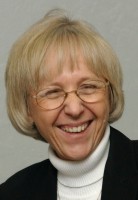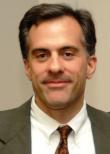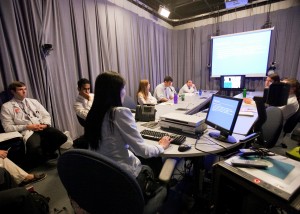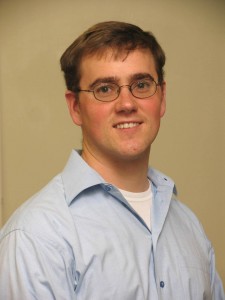Athletes have coaches, why not teachers?
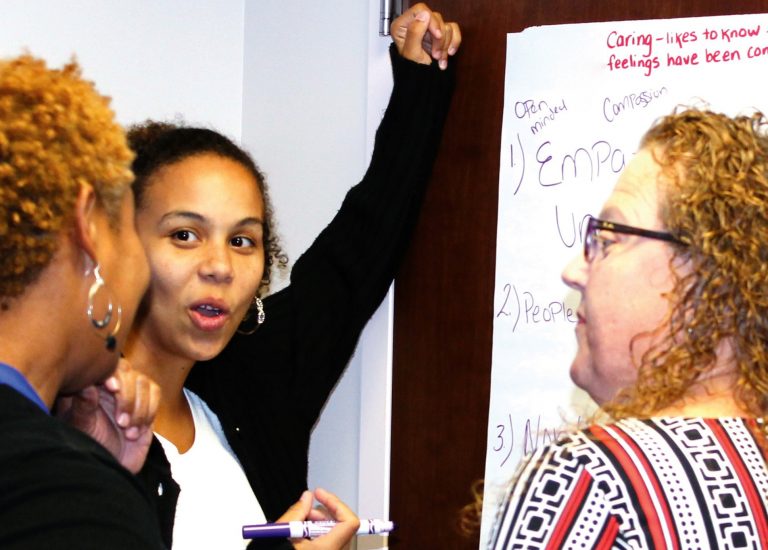
The Lastinger Center’s Coaching Academy has become a national leader in certifying teacher coaches in preschool through high school.
GAINESVILLE, Fla. — NFL quarterback Tom Brady has a coach. So does tennis superstar Serena Williams. Same goes for many of America’s most successful CEOs.
So why not teachers?
Scholars at the University of Florida’s College of Education and two nonprofit educational organizations are recommending just that: all teachers should have a skilled coach as a way to improve the nation’s educational system.
Research has shown that strong coaching can enhance a teacher’s practice and student learning — yet a majority of teachers say they don’t receive regular professional coaching, according to a new report from the UF Lastinger Center for Learning, developed jointly with the groups Learning Forward and Public Impact.
“Coaching is for everyone,” said Don Pemberton, director of the Lastinger Center, which serves as the college’s teaching and learning innovation incubator.
“There is kind of a stigma in education that coaches are only provided to the weak teachers,” Pemberton said. “In our work, we have reimagined coaching for all teachers. Anyone can gain value from it as they do in sports, and as CEOs do. We believe that should be the case in education. It’s really about human development.”
Only half of teachers receive coaching
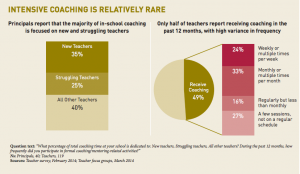
Nationwide, just half of teachers reported receiving coaching in a recent 12-month period, and only 12 percent had weekly coaching sessions, according to a 2014 survey funded by the Bill & Melinda Gates Foundation and cited by the researchers.
This new report, “Coaching for Impact: Six Pillars to Create Coaching Roles that Achieve Their Potential to Improve Teaching and Learning,” is aimed at schools and administrators nationwide in hopes of developing a framework and conversation about the importance of teacher coaches. The UF Lastinger Center teamed up on the research, writing and dissemination of the report with Learning Forward, a Dallas-based professional association for kindergarten-to-12th-grade teachers, and Public Impact, a Carrboro, N.C.-based organization working to improve learning for all U.S. children.
UF education professor emerita Dorene Ross served as project leader for the Lastinger Center.
Pemberton said the report comes at a time that schools across the country are spending tens of millions of dollars on implementing some form of coaching for teachers but these programs haven’t been fully conceptualized and developed to have the greatest impact.
“The question is how to get more value? It’s a field that is ready for some innovation,” Pemberton said.
The report serves as a roadmap for schools: It summarizes the findings of academic research, provides effective coaching models and makes recommendations for incorporating high-quality coaching in the daily routine at schools.
Six ‘pillars’ for coaching programs
The authors cite six “pillars” necessary to implement successful coaching programs:
- Commitment of education system leaders
- Careful selection of teacher coaches
- Shared responsibility for student outcomes by the coaches and the teachers they coach
- Clarification of roles, time allotted and culture
- Adequate training and support
- Improved compensation for coaches to attract and retrain great teachers in coaching positions
Pemberton and Ross acknowledged more study was needed about ways budget-constrained school districts can provide higher or “differentiated” pay to teacher coaches.
One step toward that goal is professionalizing the coaching field through formal certification programs. The Lastinger Center’s Coaching Academy has become a national leader in certifying teacher coaches in preschool through high school, with more than 1,500 coaches either certified or currently enrolled in the program.
It is working with seven Florida school districts(1), all 30 of Florida’s early learning coalitions, and the Charleston, S.C., school system to develop coaching programs, including specialty ones aimed at early childhood education, literacy and STEM (science, technology, engineering and math). The center also has contracted with the state of Georgia to develop a statewide designation for preschool coaching.
Ross said, “We think the more school districts invest in coaching the more they will realize how valuable coaching is, especially as coaches show they are truly improving the practice of teachers and, ultimately, student achievement.”
(1) NOTE: The seven Florida school districts working with the UF Lastinger Center’s teacher-coaching program are in Alachua, Duval, Indian River, Miami-Dade, Orange, Palm Beach and Seminole counties.
Source: Don Pemberton, 352-273-4100, UF Lastinger Center for Learning
Source: Dorene Ross, 352-538-1920, UF Lastinger Center for Learning
Writer: Charles Boisseau, UF College of Education news & communications office, 352-273-4449

